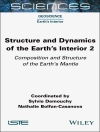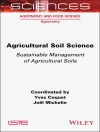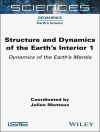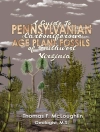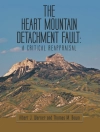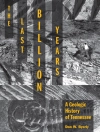Provides the first comprehensive review of the current state of the science on tills
It is critical that glacial scientists continue to refine their interpretations of ancient archives of subglacial processes, specifically those represented by tills and associated deposits, as they form the most widespread and accessible record of processes at the ice-bed interface. Unfortunately, despite a long history of investigation and a lexicon of process-based nomenclature, glacial sedimentologists have yet to reach a consensus on diagnostic criteria for identifying till genesis in the geological record. What should be called till? Based on the author’s extensive field research, as well as the latest literature on the subject, this book attempts to provide a definitive answer to that question. It critically reviews the global till literature and experimental and laboratory-based assessments of subglacial processes, as well as the theoretical constructs that have emerged from process sedimentology over the past century. Drawing on a wide range of knowledge bases, David Evans develops a more precise, contemporary till nomenclature and new investigatory strategies for understanding a critical aspect of glacial process sedimentology.
* Provides an in-depth discussion of subglacial sedimentary processes, with an emphasis on the origins of till matrix and terminal grade and the latest observations on till evolution
* Describes contemporary laboratory and modelling experiments on till evolution and techniques for measuring strain signatures in glacial deposits
* Develops an updated till nomenclature based on an array of knowledge bases and describes new strategies for field description and analysis of glacial diamictons
Written by an internationally recognised expert in the field, this book represents an important step forward in the modern understanding of glacial process sedimentology. As such, Till: A Glacial Process Sedimentology is an indispensable resource for advanced undergraduates and researchers in sedimentology, glacier science and related areas.
Spis treści
Acknowledgements vii
1 Glacigenic Diamictons – A Rationale for Study 1
2 A Brief History of Till Research and Developing Nomenclature 7
3 Till – When is it an Inappropriate Term? 30
4 Glacigenic Diamictons: A Strategy for Field Description and Analysis 35
4.1 Diamicton 35
4.2 (Glacigenic) Melange 37
4.3 Physics of Material Behaviour 40
4.4 Typical Structures 44
4.5 Clast Macrofabrics and Microfabrics 44
5 Subglacial Sedimentary Processes: Origins of Till Matrix and Terminal Grade 54
6 Subglacial Sedimentary Processes:Modern Observations on Till Evolution 59
6.1 Lodgement, Lee-Side Cavity Filling and Ploughing 59
6.2 Deformation 69
6.3 Soft-Bed Sliding (Ice Keel Ploughing), Meltwater Drainage and Ice-Bed Decoupling 77
6.4 Melt-Out 83
6.5 Glacitectonite Production, Rafting and Cannibalisation 86
7 Subglacial Sedimentary Processes: Laboratory and Modelling Experiments on Till Evolution 98
8 Measuring Strain Signatures in Glacial Deposits 104
9 The Geological Record: Products of Lodgement, Cavity Fill and the Boulder Pavement Problem 132
9.1 Introduction – Repositioning Field Studies and Experimental Reductionism 132
9.2 Lodgement 134
9.3 Clast (Boulder) Pavements 139
9.4 Lee-side Cavity Fills 142
10 The Geological Record: Deforming Bed Deposits 145
11 The Geological Record: Sliding Bed Deposits 179
12 The Geological Record: Impacts of Pressurised Water (Clastic Dykes) 188
13 The Geological Record: Melt-out Till 202
14 The Geological Record: Glacitectonite 222
15 Glacial Diamictons Unrelated to Subglacial Processes 259
16 Till Spatial Mosaics, Temporal Variability and Architecture 298
17 Concluding Remarks: The Case for a Simplified Nomenclature 333
References 342
Index 385
O autorze
David J A Evans is a Professor in the Department of Geography at Durham University, Durham, UK. A leading expert in the field of glacial process sedimentology, his research on the landforms and sediments of modern and ancient glaciated basins has been the catalyst for the compilation of glacial landsystems models and the reconstruction of palaeo-glacier dynamics.


